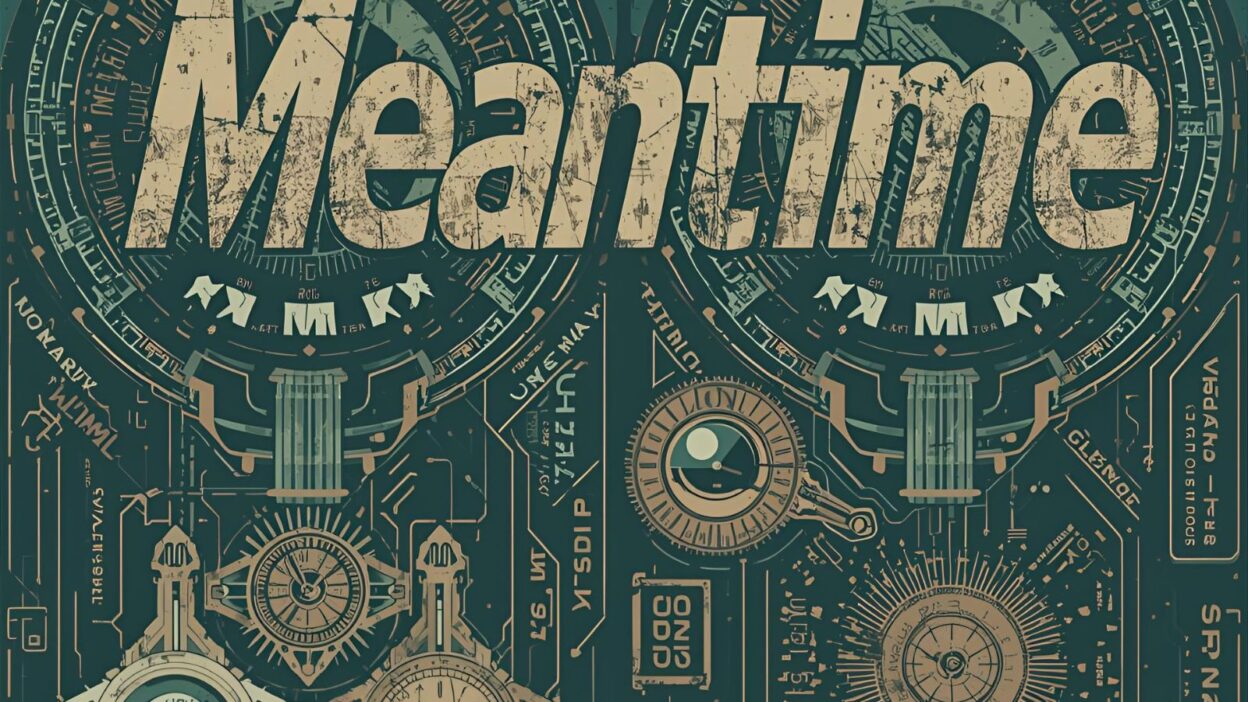Have you ever paused while writing and wondered — is it meantime or mean time? You’re not alone.
Thousands of people search this question every month, confused by how similar these two phrases look and sound.
The truth is, “meantime” and “mean time” are both correct, but they have completely different meanings and uses.
One appears in everyday conversation, while the other belongs in the world of science and astronomy.
In this article, you’ll get a clear, easy-to-understand explanation of both terms, their history, and how to use them correctly.
We’ll also look at how British and American English handle them, show real-life examples, and even explore Google Trends data to see which one people use more often.
Meantime or Mean Time – Quick Answer
✅ Quick Answer:
- “Meantime” (one word) means the period between two events.
- Example: “In the meantime, let’s grab a coffee.”
- Example: “In the meantime, let’s grab a coffee.”
- “Mean time” (two words) is a scientific term used in astronomy to describe average time based on the Earth’s rotation.
- Example: “Greenwich Mean Time (GMT) is the standard for world clocks.”
- Example: “Greenwich Mean Time (GMT) is the standard for world clocks.”
In short:
👉 Use “meantime” in everyday English.
👉 Use “mean time” only in technical or scientific contexts.
The Origin of “Meantime” or “Mean Time”
The confusion between meantime and mean time comes from their shared linguistic roots in Old English.
- “Mean time” first appeared in the 14th century, derived from the word mene, meaning “common” or “average.” It became part of astronomical vocabulary as scientists began measuring average solar time.
- “Meantime” evolved later as a shortened form of “in the mean time.” Over time, people began writing it as a single word because it was frequently used in speech and writing.
So while they started from the same phrase, their meanings diverged — one stayed scientific (mean time), and the other became everyday English (meantime).
British English vs American English Spelling
Both British and American English recognize meantime and mean time, but their frequency and context differ slightly.
| Context | British English | American English | Example |
| Common usage | In the meantime | In the meantime | “In the meantime, we’ll wait.” |
| Scientific term | Greenwich Mean Time | Greenwich Mean Time | “The UK uses Greenwich Mean Time (GMT).” |
| Formal preference | Often “in the meantime” | Often “in the meantime” | “Please wait in the meantime.” |
👉 Both dialects prefer “in the meantime” in everyday use.
👉 “Mean time” remains identical across both, mainly used in astronomy and navigation.
Which Spelling Should You Use?
Here’s a simple guide:
- If you’re writing for general readers (emails, blogs, news, social posts) → use “meantime.”
- If your audience is scientific, technical, or academic → use “mean time.”
- If your readers are from the US, UK, or Commonwealth countries → “meantime” works universally.
✅ Rule of Thumb:
If your sentence makes sense with “in the meantime,” then use meantime (one word).
Common Mistakes with “Meantime or Mean Time”
- ❌ Incorrect: “I’ll call you in mean time.”
✅ Correct: “I’ll call you in the meantime.” - ❌ Incorrect: “We use meantime to calculate solar time.”
✅ Correct: “We use mean time to calculate solar time.” - ❌ Incorrect: “Greenwich meantime is famous.”
✅ Correct: “Greenwich Mean Time (GMT) is famous.”
Tip: Remember — “meantime” = general waiting time, “mean time” = scientific average time.
“Meantime or Mean Time” in Everyday Examples
Emails:
- “In the meantime, please review the attached file.”
News Headlines:
- “In the meantime, residents are urged to stay indoors.”
Social Media Posts:
- “Waiting for the weekend, but in the meantime, coffee helps!” ☕
Formal Writing:
- “Greenwich Mean Time serves as the base for international timekeeping.”
Notice how “meantime” dominates casual and professional writing, while “mean time” only appears in scientific contexts.
“Meantime or Mean Time” – Google Trends & Usage Data
Google Trends data shows that “meantime” is searched and used far more frequently than “mean time.”
Top regions searching for “meantime”:
- United States
- United Kingdom
- India
- Nigeria
- Philippines
Top regions for “mean time”:
- United Kingdom (due to GMT references)
- Canada
- Australia
Keyword Comparison Table
| Keyword | Meaning | Common Use | Popularity (Google) |
| Meantime | Period between events | Everyday English | ⭐⭐⭐⭐ |
| Mean time | Average/solar time | Scientific use | ⭐⭐ |
FAQs
1. Is “meantime” one word or two?
It’s one word. You can also say “in the meantime,” which is the most common phrase.
2. What does “mean time” mean?
It refers to average solar time — a scientific concept used in astronomy and timekeeping.
3. Can I say “in mean time”?
No. The correct phrase is “in the meantime.”
4. What is Greenwich Mean Time?
Greenwich Mean Time (GMT) is the mean solar time at the Royal Observatory in Greenwich, London — used as a global time standard.
5. Is “meantime” formal or informal?
It’s neutral — suitable for both casual and formal contexts.
6. Is there a difference in pronunciation?
Yes. Meantime is pronounced /ˈmiːn.taɪm/ (one unit), while mean time is /ˈmiːn taɪm/ (two separate words).
7. Which one should I use in academic writing?
Use mean time only if referring to scientific measurements; otherwise, meantime is correct.
Conclusion
Both “meantime” and “mean time” are correct — they just belong to different worlds.
- Use “meantime” when referring to the period between two events.
- Use “mean time” when discussing time averages or astronomy.
Understanding this distinction saves you from common grammar mistakes and ensures your writing sounds polished, professional, and precise.
Whether you’re writing an email, a blog, or a research paper, remember:
👉 Everyday use = meantime
👉 Scientific use = mean time
Discover More Articles:
- In Tact or Intact What’s the Correct Spelling and How to Use It? 2026
- Neice or Niece Which Spelling Is Correct? 2026
- 101+Lifes or Lives What’s the Correct Word and When to Use It? 2026
- 101+Rational or Irrational Understanding the Key Differences 2026



